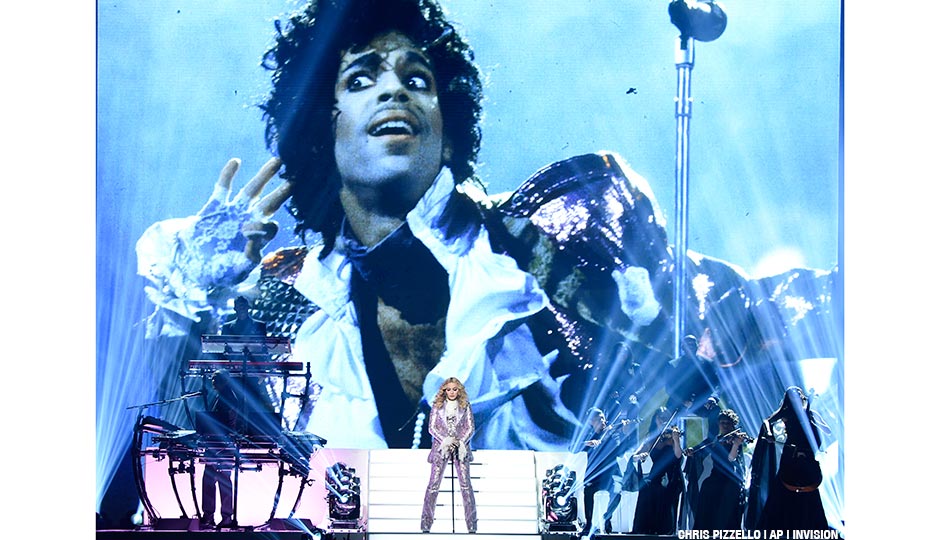What Every Artist Who Will Pay Tribute to Prince Should Learn From Madonna

Hollywood has it right, the music industry has it wrong. When the movie industry pauses during awards shows to honor the deceased they unroll a spool of greatest hits highlights. You get to relive actors’ most memorable lines and performances; the screen lingering over some choice scenes, characters or films closely tied to legacy. It’s as if the performers are briefly given life again — the screen fills up and lets us relive their most iconic moments. It’s a conjuring of sentiment, memory and reverence that makes it feel more like a séance; Chris Rock gathers us together, the room goes dark, and for five minutes Leonard Nimoy is with us again, wizened eyebrows and all.
But if Hollywood is a séance, the music industry is an exhumation. The music industry prefers to unearth the body of work of its deceased and give them a sometimes macabre, typically grotesque, tribute performance. It’s an awkward reanimation of the artist that usually pales in comparison of the original. And with the music awards season fully underway we got our first sight of the Prince of the Undead courtesy of Madonna’s 2016 Billboard Awards performance on Sunday. Her tribute performance was largely pilloried across the spectrum. Though softly aided by Philly’s own Questlove — who introduced her performance and reportedly helped engineer it — in a series of tweets, the internet had already spoken: the performance was horrible. Not even industry-safe props like Stevie Wonder could stave off the poor reception the performance received.
On the surface you could see why it made sense from an industry and historical perspective: Madonna, Michael Jackson and Prince were the Mount Rushmore of the ’80s and ’90s MTV-era, the trio setting the pop music standards for decades; selling millions on their sound, look and symbolism. These were artists that didn’t bridge the times as much as they dictated them, with Madonna and Prince serving as the musical and sexual foils to Jackson’s more suppressed and repressed id. Like Prince, Madonna’s music and persona poked and agitated our sense of sexual decency and comfort, the two of them spending nearly 30 years tag-teaming our gender and societal senses: one deflowering our sexual innocence on the awards stage in a bridal gown; the other stomping on our gender definitions in defiant eye shadow and high heels.
But despite those surface similarities, Madonna’s tribute performance fell short. First performing “Nothing Compares 2 U” and then “Purple Rain” with Stevie Wonder, it was a low-key, drab production that seemed to misinterpret the spirit of Prince — who you might imagine wanting his funeral to be more Bacchanal than somber re-enactment. As the tribute overstayed its welcome, you could almost feel Prince’s spirit floating about the arena, looking for a place to alight and re-inhabit his music again. That night, though, never found the right footing to reignite Prince’s whimsical magic. At one point the audience brandished purple wands but felt more like air traffic controllers trying to guide his presence into the arena.
Madonna should perhaps get props (and grace) for going first, but really; does any tribute performance actually stand a chance to do the Purple One justice? BET, in a shrewd move tapping into the collective dismay in Madonna’s tribute has already promised to remedy the Billboard performance via a declarative (and since-deleted) tweet: “Yeah, we saw that. Don’t worry. We Got You.”
Here’s hoping that instead of re-animating his discography with the likes of faded or failed R&B artists, the night’s host instead has the arena go dark and for five minutes we’re treated to something simple: a montage of Prince’s best performances and moments wailing from the beyond.
Tre Johnson writes at Dearth of a Nation.


